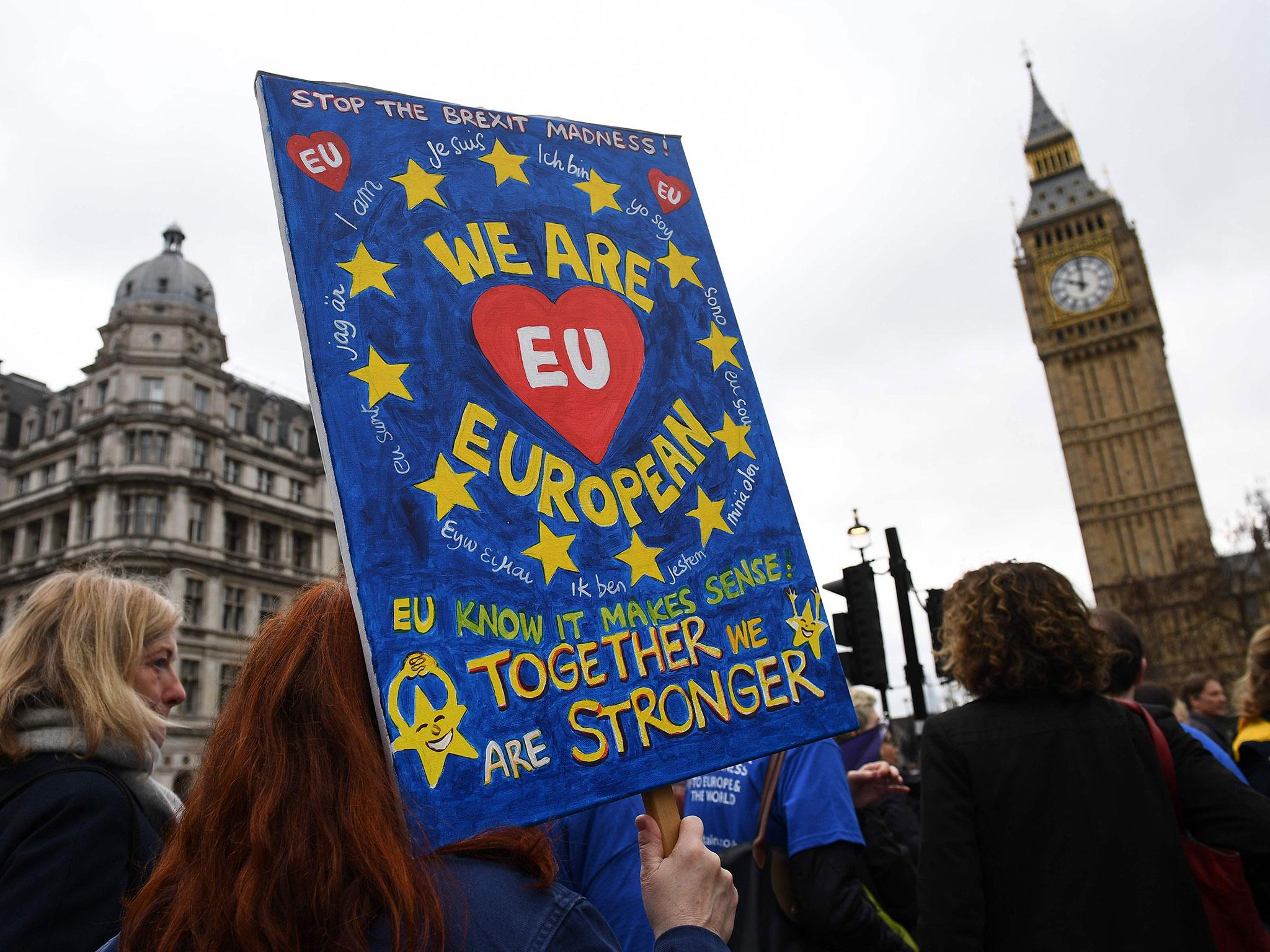Theresa May's snap election announcement seized by Remainers as opportunity to block hard Brexit
However, many pro-EU figures privately admit the likelihood of stopping the Prime Minister’s plan is slim – specifically blaming Labour for its poor opposition

Theresa May's snap general election has thrown an unexpected lifeline to pro-EU politicians campaigning against the hard Brexit she seeks.
In theory at least, they have a surprise early opportunity to mobilise the 48 per cent who voted Remain, rather than having to wait until the scheduled election in 2020, by when the UK would have left the EU.
This election will not be a rerun of last year’s referendum. Europhiles will not play into Ms May's hands by calling for no Brexit. But 8 June will provide a people’s verdict on whether Ms May should be given a free hand to deliver the hard Brexit she wants – prioritising control of immigration ahead of the economy, and so leaving the single market.
On the face of it, the party with the most to cheer is the Liberal Democrats, who have pitched relentlessly to the 48 per cent since the referendum. Tim Farron, the Lib Dem leader, said: “If you want to avoid a disastrous hard Brexit, if you want to keep Britain in the single market, if you want a Britain that is open, tolerant and united, this is your chance.”
Other figures also expressed hope that hard Brexit could be stopped. Manuel Cortes, leader of the white-collar rail union TSSA, said: “We have been handed the opportunity to save Britain from the devastating consequences of the Tory desire to drive Britain over the Brexit cliff.”
But privately there was little optimism among pro-European politicians that Ms May's version of Brexit could be stopped. The problem is that the only party who could defeat her – Labour – wants to fight the election on the traditional ground of the economy and public services rather than Brexit. It is not trusted on the economy, and has a leader who is unpopular with voters and not seen as a credible prime minister.

As one pro-EU figure put it: “If you had a credible leader of the opposition saying what the Lib Dems are saying, then we would have a chance of halting hard Brexit. But we don’t, and Theresa May would not have called an election if we did.”
It is possible that the Lib Dems will manage some gains in pro-Remain areas, as they did in last December’s Richmond Park by-election. In some constituencies, there could be anti-Brexit, anti-Tory tactical voting or even grassroots-led cooperation between Labour, the Lib Dems and Greens.
But this is unlikely to produce a national swing big enough to prevent Ms May increasing her majority. The Lib Dems start with just nine seats. Opinion polls show that many Remain voters now want the Government to “get on with Brexit,” which is precisely what the Prime Minister will pledge to do.
While her pitch may make Ukip’s call for “clean Brexit” redundant, pro-Europeans are unlikely to gain much comfort from a Ukip collapse; its votes could easily switch to the Tories and enable them to win more Con-Lab marginal seats. If Labour loses ground, as the polls suggest, its MPs could find themselves representing a higher proportion of constituencies that backed Leave last year than at present. Several safe Labour seats in the North voted Leave.
Campaigners against hard Brexit fear they have been outmanoeuvred by Ms May. She will be able to rerun the “have your cake and eat it” promises made by Brexiteers in the referendum – regaining control of immigration and the courts while keeping access to EU markets. There will be no “disappointment factor” or sense of broken promises at a 2020 election that will not now happen. “She has got her election in before the shit hits the fan,” said one Labour MP.
If Ms May, armed with a big majority, strikes a deal with the EU, Parliament is likely to endorse exit and transitional agreements in 2019. MPs would be denied a “pro-EU moment” when a cross-party alliance of Labour, Lib Dems and Tories might just have joined forces to block a hard Brexit. They have certainly been talking about that in private.
To limit disruption for business, Britain could remain in the single market during a three-year transitional deal lasting until 2022 when, conveniently, the next general election will be due.
By then Ms May will hope to have struck a free trade agreement with the EU. But disappointment might be setting in among voters who realise that the UK cannot have its cake and eat it after all.
Pro-Europeans might well fight a 2022 election on a platform of Return (to the EU) instead of Remain. But after Ms May’s unexpected manoeuvre on the chess board, they will now have to play a long game.
Join our commenting forum
Join thought-provoking conversations, follow other Independent readers and see their replies
Comments